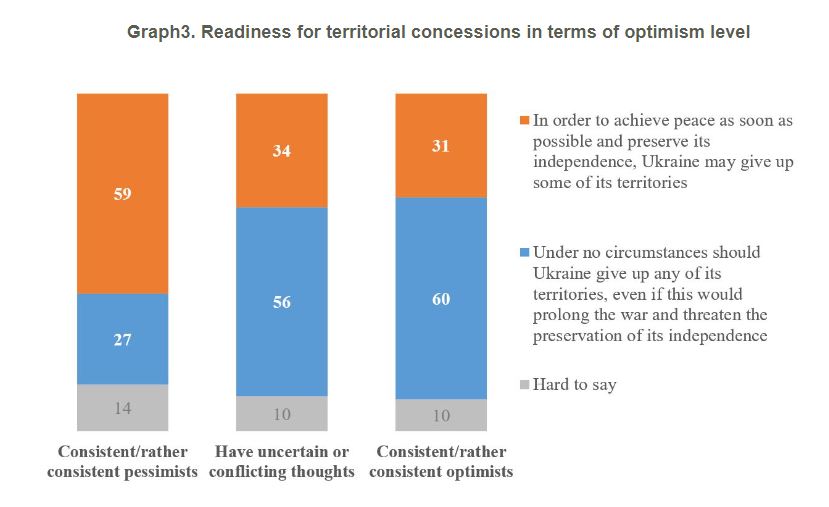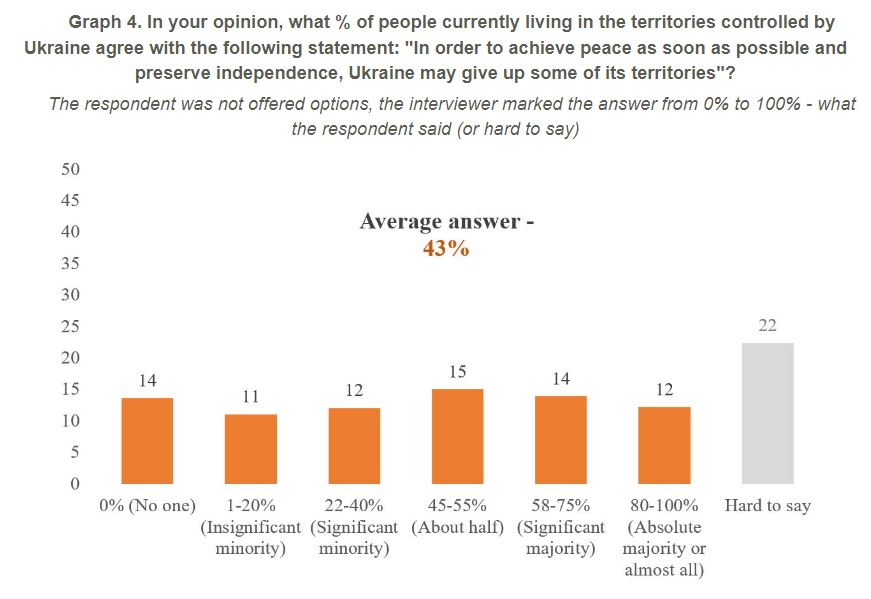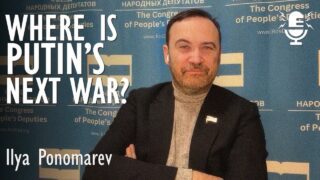
Majority of Ukrainians still reject territorial deals, but strict opposition declines, poll reveals
The share of Ukrainians categorically opposing any territorial concessions has decreased, according to a new poll released by the Kyiv International Institute of Sociology (KIIS) on 3 January.
The survey comes as US President-elect Donald Trump, who assumes office on 20 January, pushes for peace negotiations to stop the ongoing Russo-Ukrainian war, and has earlier promised cuts to US aid for Ukraine. Trump has previously promised to swiftly resolve the conflict, with his team suggesting Ukraine might need to make territorial concessions to Russia in exchange for peace.
The survey, conducted from 2 to 17 December 2024, reveals that 51% of Ukrainians remain against any territorial concessions, down from 58% in early October. Meanwhile, the proportion of those generally ready for certain territorial concessions increased from 32% to 38%.
Regional analysis shows similar trends across most of Ukraine, with only the East (Donetsk and Kharkiv oblasts) showing slightly lower opposition to concessions. However, even in this frontline region, 43% of residents categorically oppose any concessions, while 41% are open to some compromises.
Majority of Ukrainians support nuclear weapons restoration, new poll shows
The study found a strong correlation between optimism and attitudes toward concessions. Among optimists, who comprise 50% of respondents, 60% categorically oppose any concessions, while 31% are generally ready for certain compromises. Conversely, among pessimists (23% of respondents), 59% support making certain territorial concessions, while 27% oppose them.

Attitudes towards separate peace agreement packages
KIIS’s research also explored attitudes toward specific peace agreement scenarios. When presented with different packages including NATO membership, EU membership, and various territorial arrangements, Ukrainians showed increased acceptance of certain compromises compared to June 2024:
- A package including NATO membership, EU membership, and postponement of territorial liberation garnered 64% support, up from 47% in June.
- 60% would accept NATO and EU membership combined with regaining control of Kherson and Zaporizhzhia oblasts while postponing liberation of the Donbas and Crimea.
- Only 41% supported a scenario involving EU membership without NATO membership, with 47% finding this option completely unacceptable.
Anton Hrushetskyi, KIIS executive director, noted that Ukrainians remain resilient while showing pragmatism toward peace options.
“Ukrainians understand geopolitical and internal difficulties and limitations, so we are ready to demonstrate a pragmatic position,” Hrushetskyi said. “However, we reject the erroneous idea that we want peace under any conditions.”
The survey included 2,000 adult respondents living in government-controlled territories of Ukraine, with questions about territorial concessions asked to 985 respondents. The statistical error margin does not exceed 4.1% for the main sample and 5% for specific peace agreement packages.
Related:













